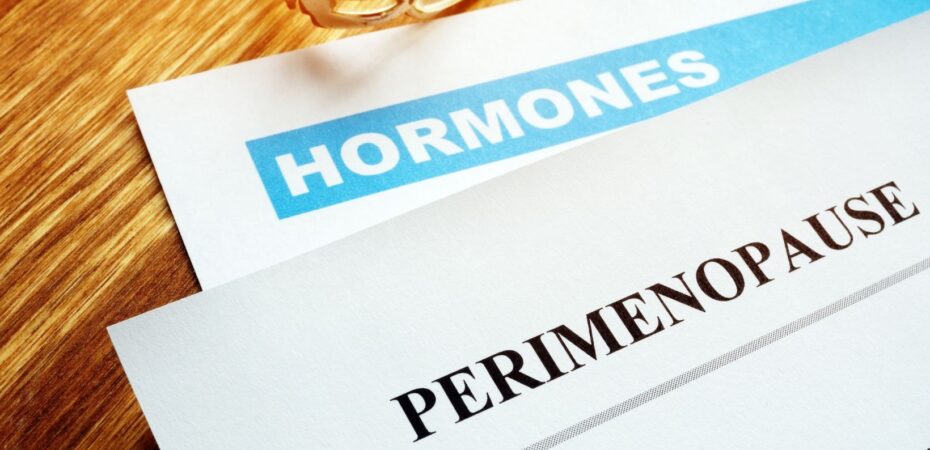These days, the 40s are the new “prime of your life.” However, for busy women still juggling jobs, families, and households, keeping yourself healthy is not always easy, especially with perimenopause on the horizon and new conditions springing up resulting from reduced hormone production. That’s why prioritizing nutrition and wellness becomes essential—this is where Ethical Nutrients can play a key role in supporting your body’s changing needs. So, what should a health-conscious woman in her 40s look out for?
What is Perimenopause?
Although every woman is different, the mid-40s to mid-50s are the window during which most women experience perimenopause or the preparation for the end of menstruation. This is the window in which the body begins to undergo changes and hormonal shifts to prepare for the end of the childbearing years. During this period, the hormone estrogen goes through fluctuations, slowly decreasing in production. Menstrual cycles become irregular, shorten, and eventually end.
What are the Symptoms of Perimenopause?
Every woman has a unique experience with perimenopause, but most experience the following symptoms:
Vaginal Dryness And/Or Itching
Estrogen is responsible for keeping the vaginal tissues elastic and lubricated. Decreasing hormone levels can lead to dryness and itching.
Irregular Menstruation
During perimenopause, ovulation becomes irregular, which causes menstruation to fluctuate. The length of time between periods might shorten or lengthen, and missed periods are also common.
Disturbed Sleep
Women who experience hot flashes and night sweats find their sleep patterns disturbed. However, some women may experience disrupted sleep even without them, as energy levels change during this time.
Hot Flashes
One of the most recognized signs of menopause is hot flashes. They might vary in length and intensity. Estrogen imbalances cause extreme discomfort for many women due to this symptom.
Headaches
There are many things that contribute to headaches, but in women, hormonal changes are a common cause. Women who have previously had no problems with headaches or migraines might find them becoming more common during this period.
Depression
Hormones contribute to various mood changes and mood swings, just as they do with headaches.

Just as depression might be common for some during puberty, going through changes that end the childbearing years can also be an emotionally trying time.
Anxiety
Anxiety is not common for everyone, but it is still a noted symptom of perimenopause. While some cases of anxiety are indeed due to hormonal changes, mental health experts feel that external factors are common during this time in a woman’s life, such as changes in family, career, and coming to terms with the aging process.
Problems With Memory And Concentration
Falling hormonal levels are known to contribute to cognitive changes, including short-term memory impairment and concentration. The aging process brings on symptoms such as losing track of thought and problems staying focused.
Exhaustion
Fatigue is common during perimenopause, and many women experience a lack of energy. While hormonal changes can be a cause, so can developing health conditions, which are also common during this time.
Lower Libido
As estrogen begins to decrease, sexual function also decreases. Women experiencing perimenopause might find they have a harder time with arousal and desire.
Dizziness
Dizziness is often accompanied by headaches and hot flashes, as well as a result of hormonal imbalances and a decrease in estrogen.
High Blood Pressure
In women, ovarian function is also related to maintaining healthy blood pressure levels. However, when ovulation slows, many women experience problems with high blood pressure.
What Can You Do to Treat Hormonal Imbalance?
Hormonal changes are uncomfortable and, in some cases, can cause serious health problems in aging women.

However, there are many lifestyle and health changes women can make to minimize the impact of perimenopause symptoms.
Changes In Diet
Maintaining a healthy diet is important at any age, but aging women should add protein, calcium, Omega-3, and fiber to their diets.
Exercise
Regular exercise and strength training help keep muscles and bones strong, especially as hormones cause a decrease in muscle and bone volume.
Herbal Supplements
Some women find that adding probiotics for gut health, collagen for skin and bone elasticity, and black cohosh for hot flashes is helpful.
HGH Therapy
Researchers are still studying the effects of human growth hormone on aging, but some individuals have found relief from symptoms with regular supplemental hormone therapy. The transformation in HGH women before and after photos is remarkable, showcasing the significant changes in muscle tone and overall vitality.
Reduce Alcohol And Caffeine
Caffeine and alcohol can cause symptoms such as hot flashes and anxiety to worsen. Consider reducing your intake or eliminating them altogether.
Stress Management
Yoga and meditation are wonderful tools for combating depression and anxiety, as well as maintaining physical health and flexibility.
Keep Your Bones Healthy
Make sure to get enough vitamin D and iron in your diet. Estrogen is responsible for healthy bones, and many women might experience a decrease in bone mineral density as they age.
Keep Up Regular Screenings
Schedule regular appointments with your OBGYN and GP. Take advantage of cervical and breast cancer screenings, and know your cholesterol and heart health.
Seek Medical Care
Some women feel their symptoms are not severe enough to warrant medical intervention, but some women do seek medical care. Under the advice of your doctor, along with the necessary blood tests, beginning HGH therapy might be right for you. If your perimenopause symptoms are difficult to manage, consult your doctor today and ask about hormone treatment.


 By
By 



